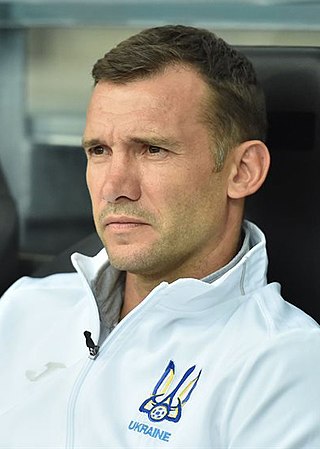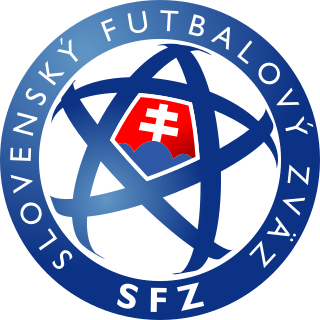Results
Ukraine vs Russia
Saturday, 10 September |
| Ukraine | 4-36 | |
|---|---|---|
| Tries: Kozak Goals: | Report [3] | Tries: Lysokon (3), Ososkov, Chuprin, Vlasyuk Goals: Lysokon (6) |
Dinamo Stadium, Kharkiv, Ukraine Attendance: 1,624 |
| 2011 Milan Kosanovic Cup | |
|---|---|
| Number of teams | 3 |
| Matches played | 3 |
The 2011 Milan Kosanovic Cup was an international rugby league tournament played in Eastern Europe [1] The competing teams were the Russia, Ukraine and Serbia.
The 2011 tournament was the inaugural staging of the Milan Kosanovic Cup. Russia took the trophy by winning both their matches. The match between Serbia and Russia was also a European qualification match for the 2013 World Cup. [2]
| Players |
|---|
| Maksim Suchkov, Rustam Bulanov, Mikhail Burlutskiy, Roman Safronov, Aleksander Lysokon, Eduard Ososkov, Sergey Konstantinov, Vladimir Vlasyuk, Anatoly Grigorjev, Aleksey Nikolaev, Ilgiz Galimov, Artyom Grigoryan, Aleksey Volkov, Vladimir Gutsulyak, Grigory Esin, Igor Chuprin, Andrey Sevostjanov |
| Players |
|---|
| Vladimir Mashkin, Igor Shevtsov, Sergey Romanko, Aleksander Skorbach, Dmitriy Semerenko, Vladimir Lobanj, Nikolay Getmanov, Maksim Miroshnichenko, Yury Smoliy, Mikhail Troyan, Sergey Kravchenko, Aleksander Kozak, Pavel Kardakov, Sergey Shevtsov, Artur Martyrosyan, Vadim Tolstoj |
| Players |
|---|
| Ivan Šušnjara, Radovan Tajsić, Nikša Unković, Stevan Stevanović, Mirko Božović, Adam Nedić, Milan Šušnjara, Dejan Lukenić, Zoran Pešić, Vuk Tvrdišić, Stefan Nedeljković, Miloš Ćalić, Stefan Nikolić. Subs: Nenad Radević, Danilo Delić, Slaviša Zekić, Nebojša Živanović |
| Pos | Team | Pld | W | D | L | PF | PA | PD | Pts |
|---|---|---|---|---|---|---|---|---|---|
| 1 | Russia | 2 | 2 | 0 | 0 | 72 | 32 | +40 | 4 |
| 2 | Serbia | 2 | 1 | 0 | 1 | 38 | 40 | −2 | 2 |
| 3 | Ukraine | 2 | 0 | 0 | 2 | 8 | 46 | −38 | 0 |
Saturday, 10 September |
| Ukraine | 4-36 | |
|---|---|---|
| Tries: Kozak Goals: | Report [3] | Tries: Lysokon (3), Ososkov, Chuprin, Vlasyuk Goals: Lysokon (6) |
Dinamo Stadium, Kharkiv, Ukraine Attendance: 1,624 |

The Union of European Football Associations is one of six continental bodies of governance in association football. It governs football, futsal and beach football in Europe and the transcontinental countries of Turkey, Azerbaijan, Georgia and Kazakhstan, as well as the West Asian countries of Cyprus, Armenia and Israel. UEFA consists of 55 national association members. Since 2022, due to the Russian invasion of Ukraine, FIFA and UEFA suspended all Russian national teams and clubs from any FIFA and UEFA competitions.

Fudbalski klub Crvena zvezda, commonly referred to as Crvena zvezda, or simply Zvezda, and as Red Star Belgrade in anglophone media, is a Serbian professional football club based in Belgrade, and a major part of the Red Star multi-sport society.

Andriy Mykolayovych Shevchenko, or Andrii Mykolaiovych Shevchenko is a Ukrainian former professional football player and manager. Shevchenko played as a striker for Dynamo Kyiv, AC Milan, Chelsea and the Ukraine national team. He was most recently head coach of Serie A club Genoa. Shevchenko is considered one of the greatest strikers of all time and Ukraine’s greatest ever player. He is the all-time top scorer for the Ukraine national team with 48 goals.

The Slovakia national football team represents Slovakia in men's international football competition and it is governed by the Slovak Football Association (SFZ), the governing body for football in Slovakia. Slovakia's home stadium from 2019 is the reconstructed Tehelné pole in Bratislava. Historically, up to the split in 1993, the team participated mostly as Czechoslovakia, while it also competed as Slovakia during World War II.

The Switzerland national football team represents Switzerland in men's international football. The national team is controlled by the Swiss Football Association.

The Russia national rugby league team, nicknamed The Bears, represents Russia in international rugby league tournaments and other rugby league fixtures. The Bears, played their first fixtures against two British club sides: York Wasps and Fulham RLFC. In 2013, Russia became a full member of the Rugby League International Federation.

The Ukraine national football team represents Ukraine in men's international football, and is governed by the Ukrainian Association of Football, the governing body for football in Ukraine. Ukraine's home ground is the Olimpiyskiy Stadium in Kyiv. The team has been a full member of UEFA and FIFA since 1992.

The Belarus national football team represents Belarus in men's international football, and is controlled by the Football Federation of Belarus, the governing body for football in Belarus. Belarus' home ground is Dinamo Stadium in Minsk. Since independence in 1991, Belarus has not yet qualified for a FIFA World Cup or UEFA European Championship.

The Serbia men's national football team represents Serbia in men's international football competition. It is controlled by the Football Association of Serbia, the governing body for football in Serbia.

Dejan Stanković is a Serbian professional football manager and former player. He captained the Serbia national team from 2007 until 2011, when he announced his retirement from international football. He is the manager of Russian team Spartak Moscow.

Luiz Adriano de Souza da Silva, or simply Luiz Adriano, is a Brazilian professional footballer who plays as a striker for Vitória.
This is a list of football matches and competitions currently involving the Serbia national football team. For results of more specific decades see the lists below.

Milan Kosanović, also known by the nickname of "Milo", was a Yugoslav Serb professional rugby league footballer who played in the 1950s and 1960s. He played at representative level for English League XIII and Yorkshire, and at club level for Bradford Northern, Wakefield Trinity and Featherstone Rovers, as a hooker.

The Russia national football team represents the Russian Federation in men's international football. It is controlled by the Russian Football Union, the governing body for football in Russia. Russia's home ground is the Luzhniki Stadium in Moscow and their head coach is Valery Karpin.
The Milan Kosanovic Cup is an international rugby league football competition played between the Russia Bears, Ukraine and Serbia. The inaugural match will be played in Ukraine.
The 2021 Men's Rugby League World Cup qualification was the qualifying process which will decide the 8 teams that would join the 8 quarter-finalists from the 2017 World Cup including the hosts England, who received an automatic spot, at the 2021 Rugby League World Cup. The process commenced in June 2018, with the commencement of the 2018–19 Rugby League European Championship C tournament, which acted as the first round for European qualification.
The 2018–19 Rugby League European Championship C was the tenth edition of the Rugby League European Championship C and acted as the initial phase of European qualifying to the 2021 Men's Rugby League World Cup. The series involves two pools of three teams in a round-robin tournament. These matches took place between 16 June and 15 September 2018, with the final match taking place on 18 May 2019, where Greece defeat Norway to progress to the next round of European repechage qualifying against Scotland and Serbia.
The 2018 Rugby League European Championship B was ninth edition of the Rugby League European Championship B and acted as the second phase of European qualifying to the 2021 Rugby League World Cup. The series involved three teams in pool play and took place in October 2018. The two highest ranked teams, Russia and Spain, advanced to the European play-off. In August 2019, Russia withdrew from the play-off tournament and were replaced by Serbia.
The 2019 Rugby League European play-off tournament was the final phase of European qualifying to the 2021 Rugby League World Cup, played in October and November 2019. It featured six nations, five of whom have come through the previous phases of European qualifying - 2018 European Championship, 2018 European Championship B and 2018–19 European Championship C. The competition was played in two groups of three with the winners and runners up in each group qualifying for the World Cup.

The 2023–24 UEFA Champions League was the 69th season of Europe's premier club football tournament organised by UEFA, and the 32nd season since it was renamed from the European Champion Clubs' Cup to the UEFA Champions League.